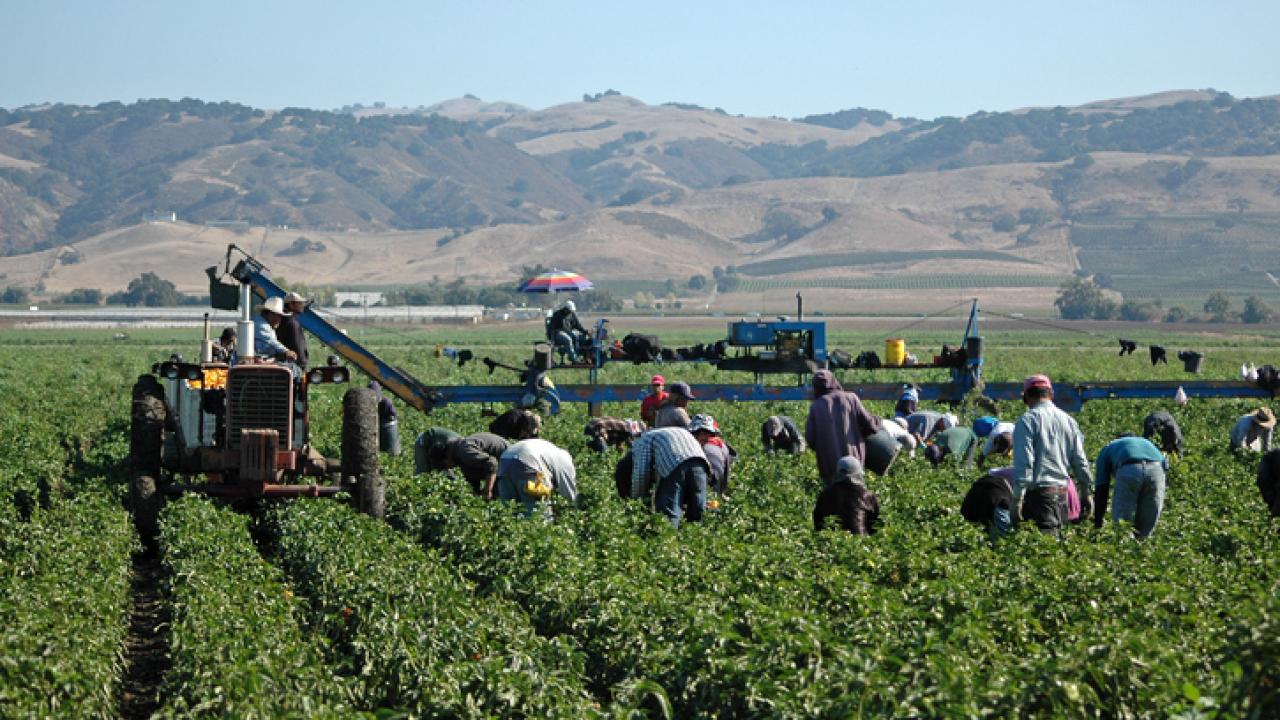Quick Summary
- Farmers increasing mechanization
- Calling for immigration reform
Despite raising wages and increasing benefits, California farmers are failing to find enough people to pick fruits and vegetables and harvest other crops, and they are offsetting this labor shortage by changing to less labor-intensive crops and adding automation. Moreover, farmers are calling on Congress to enact agricultural workforce reform that would allow immigrants to work as guest workers legally in order to help them grow food.
The findings come in a survey of more than 1,000 farmers statewide conducted by the California Farm Bureau Federation in collaboration with the University of California, Davis.
The results are consistent with a similar voluntary survey by the bureau in 2017.
“The farm labor supply is declining, and farmers are responding by changing their production practices,” said the study’s co-author, Zachariah Rutledge, a doctoral student in the UC Davis Department of Agricultural and Resource Economics. “These results are important because they show how big of a problem this is for California farmers, and they suggest that the problem is not going to go away in the near future.”
The survey, “Still Searching for Solutions: Adapting to Farm Worker Scarcity Survey 2019,” was co-authored by J. Edward Taylor, professor and vice chair in the same department and affiliate faculty of the UC Davis Center for Poverty Research. This is part of a larger look at the dwindling farm-labor supply conducted by UC Davis researchers.
Taylor recently completed a long-term study showing that fewer young people from Mexico have the need or interest to come to the United States to pick crops.
In the recent survey, 56 percent of respondents reported that they were not able to hire the number of workers they desired at some point during the previous five years. Of those reporting recent labor shortages, 70 percent said they had more trouble hiring people in 2017 and 2018. Among the survey’s other findings:
- 86 percent of farmers responding to the survey said they had raised wages in efforts to hire enough people
- 61 percent reported they had hired a farm labor contractor to recruit employees
- 37 percent said they had adjusted cultivation practices by, for example, reducing or delaying weeding and pruning
- 31 percent of farmers reported changing the acreage of their main crop, and some of this group reported switching acreage to less labor-intensive crops
In California alone, farmers and ranchers hire nearly 473,000 employees during peak season. Experts calculate, according to the survey, that 50 to 70 percent of the hired workers are not authorized to work in the United States.
Changing worldwide food supply
The findings show the potential for changing the worldwide food supply as farmers move to crops that require fewer human hands to get the crops to market. One farmer commented in the survey, “We have had to abandon berry fields and row crop fields that were good harvest quality due to the unavailability of workers during critical harvest times.” Another farmer reported leaving acres of pole tomatoes and strawberries to rot because there was no one to pick them.
Meanwhile, 57 percent of those who changed crops were planting more crops such as squashes, tree nuts, corn or cotton, which require less labor. Almost three-quarters of farmers cited rising labor costs as the reason for switching to labor-saving technology. More than 50 percent said it was because they didn’t have enough employees. Farmers reported adding technology such as a mechanical harvesters and specialized tractor attachments.
Just under 6 percent of those surveyed said they had enrolled in the federal H-2A work visas program for temporary agricultural workers in the past five years in an effort to bring in more workers, with most saying the temporary visas aren’t practical for small growers.
Farmers also report in this survey, echoing a nationwide trend, that their children do not want to continue in the farming business with the growing challenges of finding workers and making a living.
Media Resources
Karen Nikos-Rose, News and Media Relations, 530-219-5472, kmnikos@ucdavis.edu
Diane Nelson, Agricultural and Environmental Sciences, 530-752-1969, denelson@ucdavis.edu
